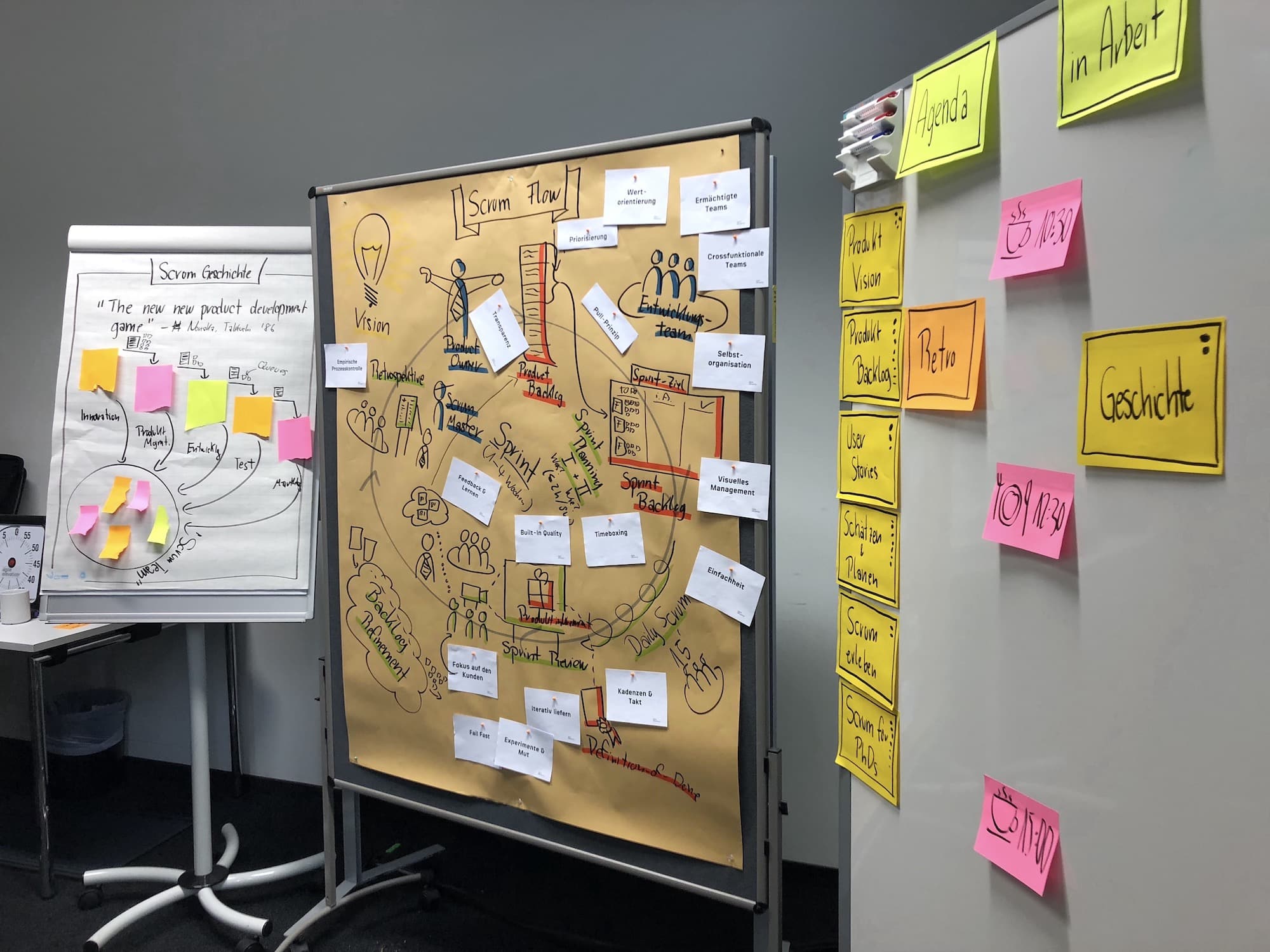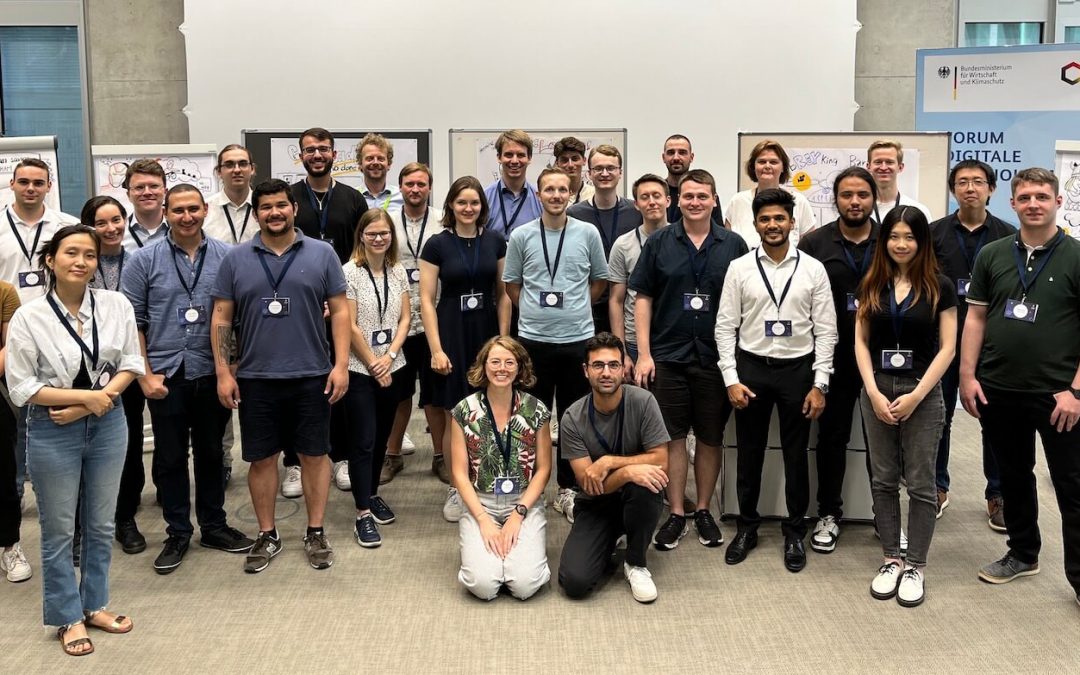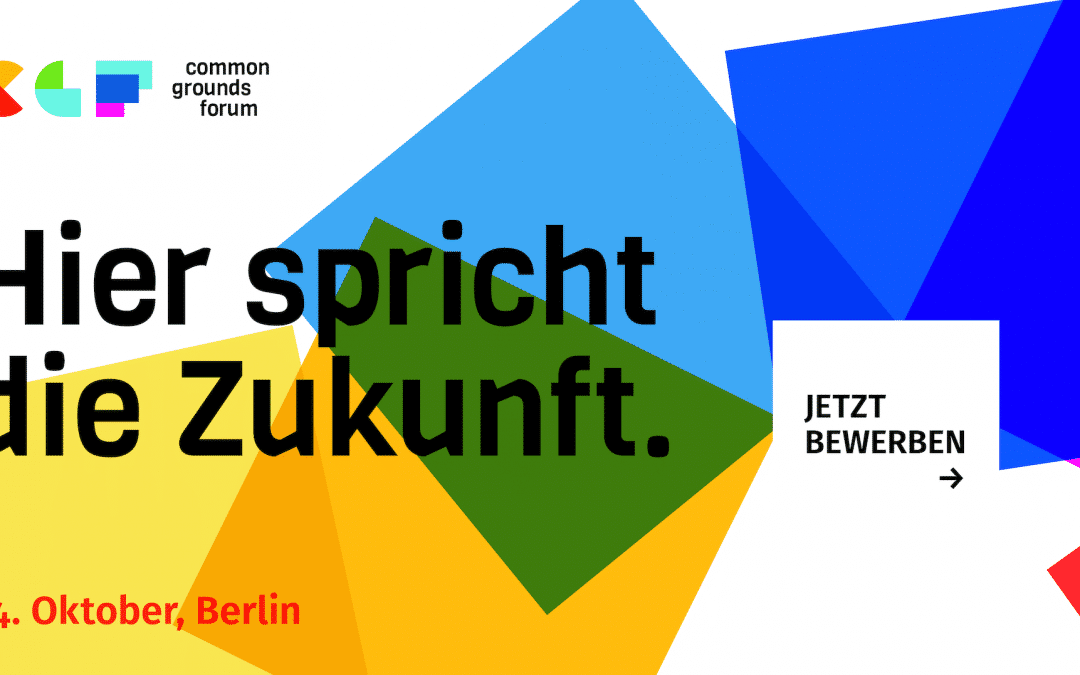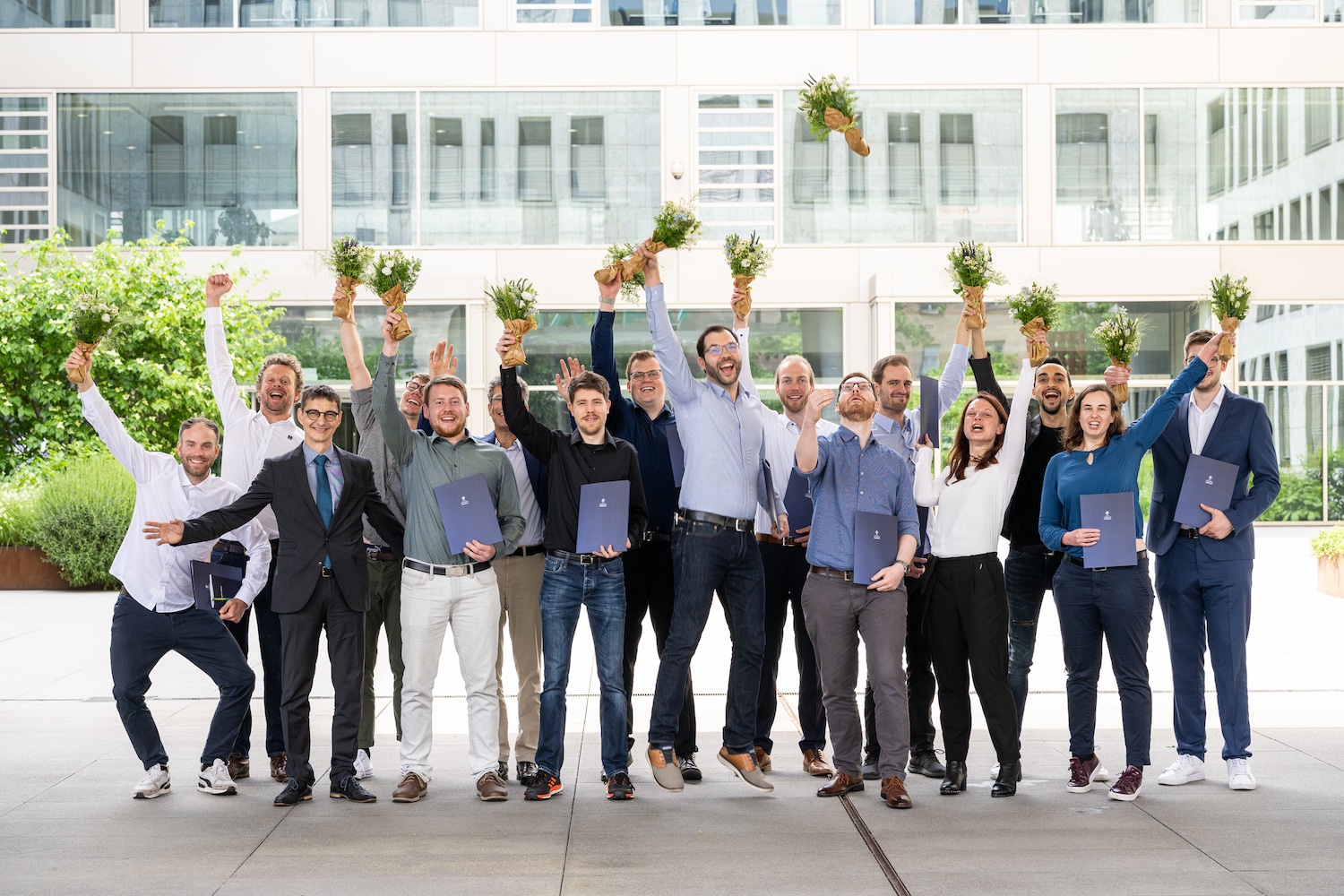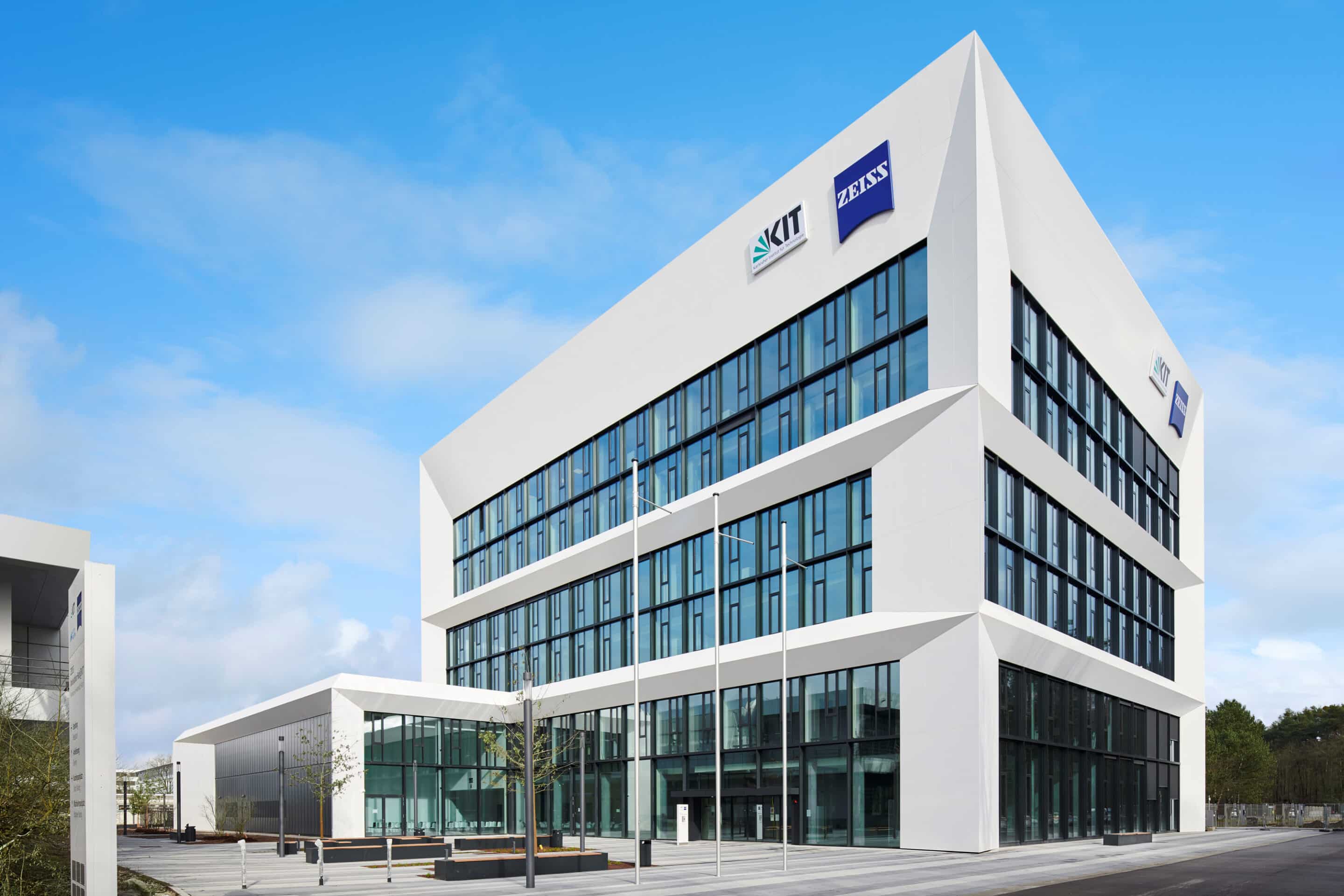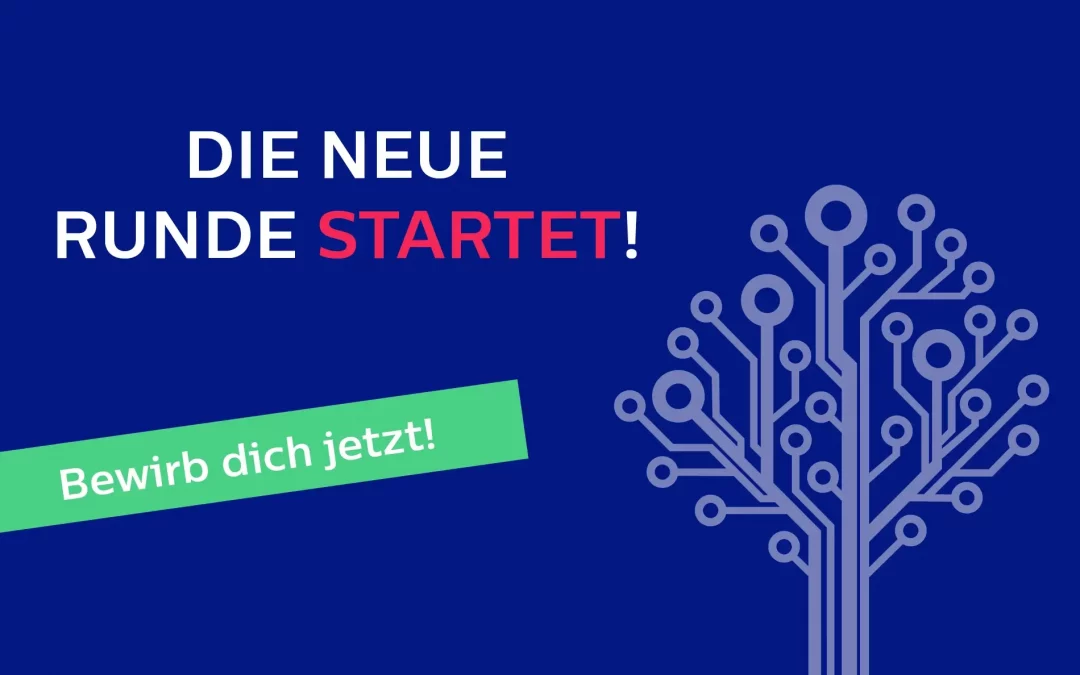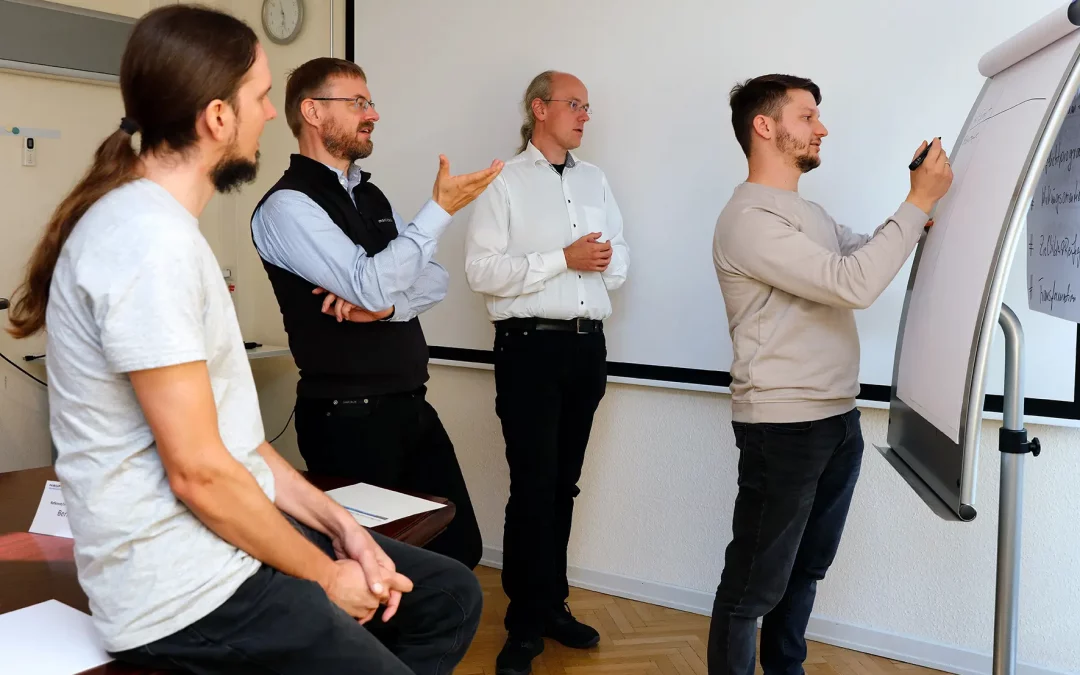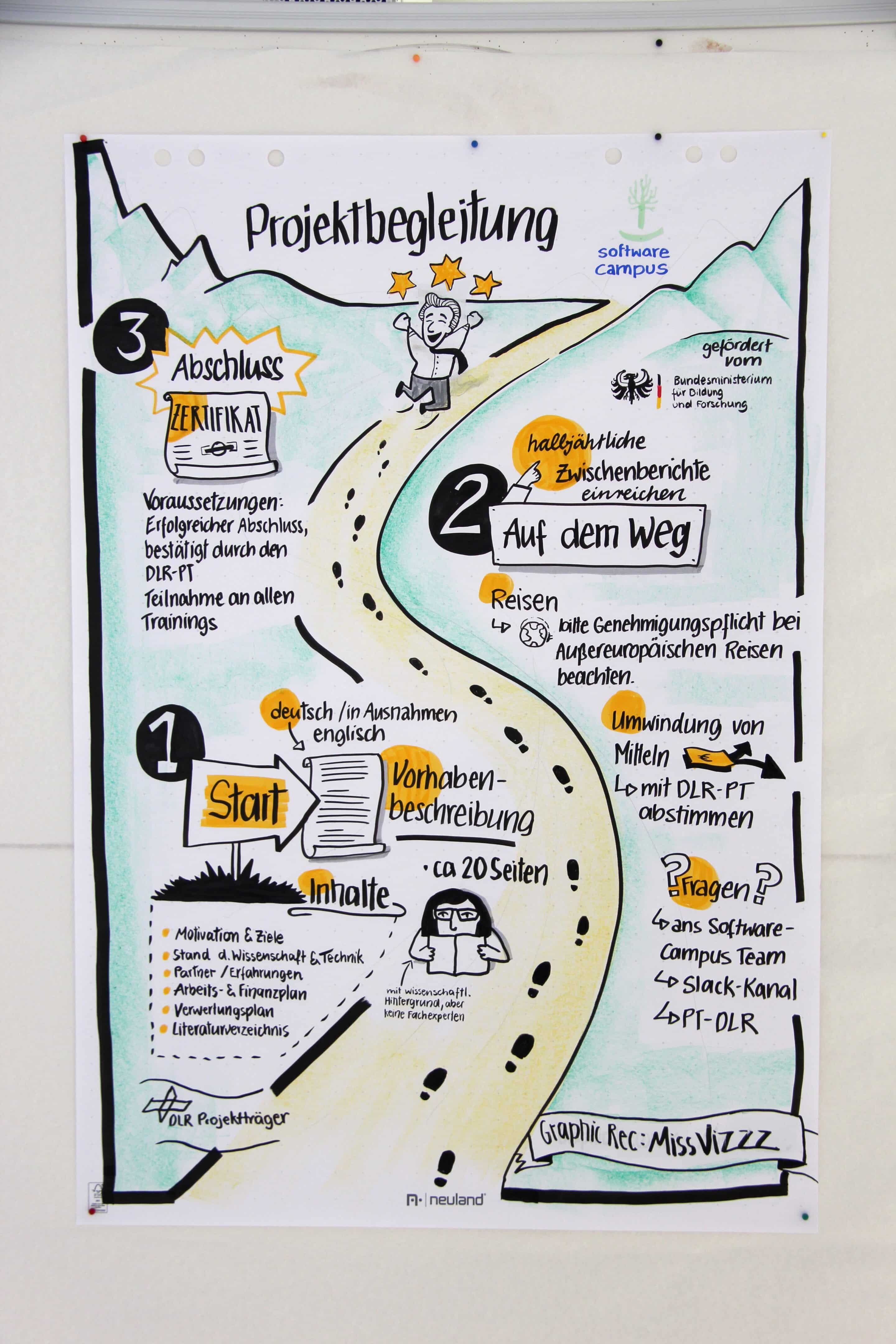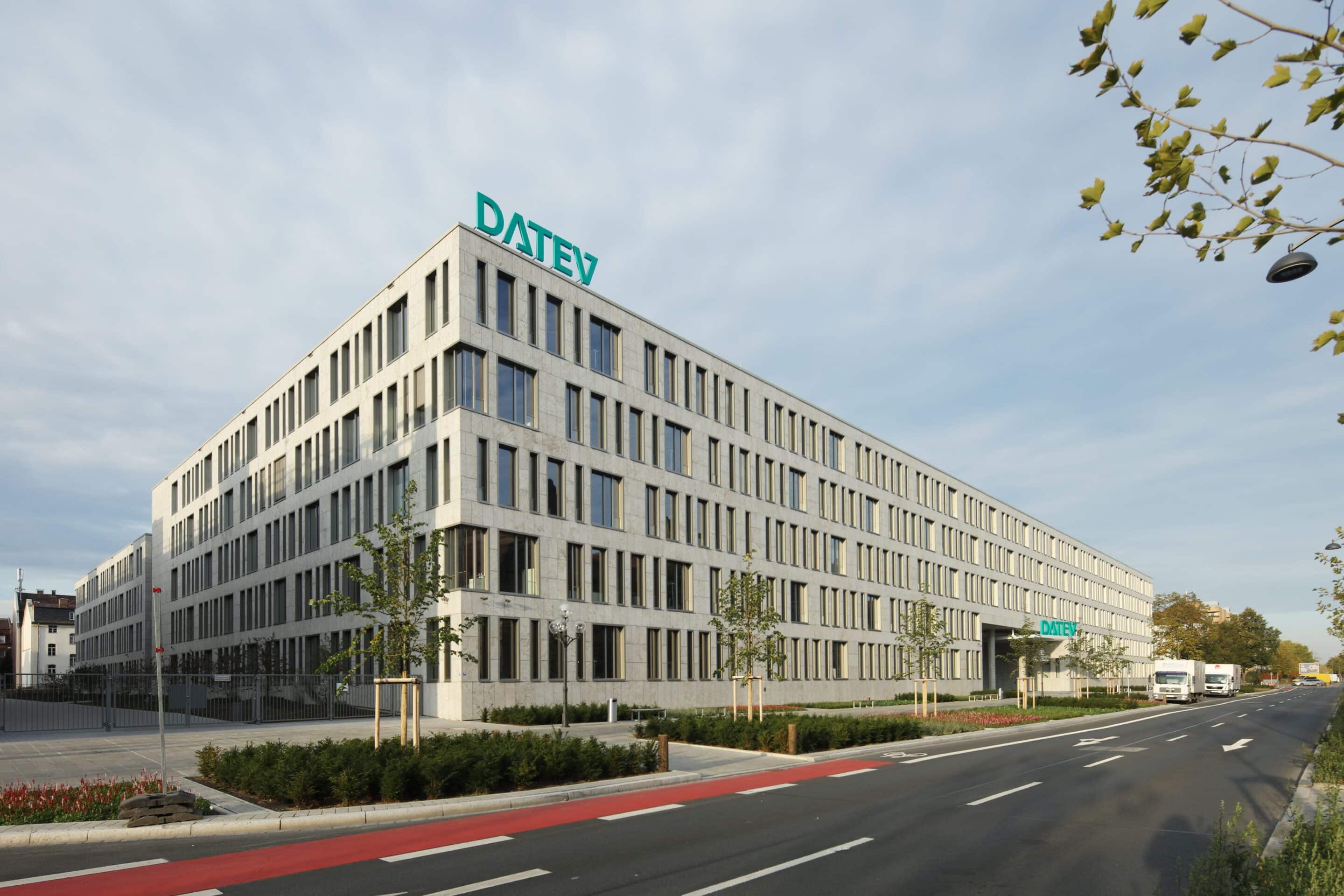To successfully manage projects and obtain targeted outcomes, a mixture of theoretical knowledge and practical training is decisive. This is why in Software Campus every participant manages their own IT research project, which is funded by the Federal Ministry of Education and Research. In their IT research projects all participants of the program pursue one goal: to conduct innovative research. Participants are supported through seminars in the areas of leadership competence, social and self-competence as well as the industry partners’ methods expertise. This year the portfolio of the methodology seminars includes amongst others innovation management, change management, sales excellence, project management as well as agile methods such as Scrum and Design Thinking.
During the training “Experiencing agility with Scrum” at DATEV eG in Nuremberg the participants learn and practice how to successfully bring a project to a close using respective roles, activities and artefacts. The methodology is simple and flexible and quickly delivers useful results through short iterations. Working with multidisciplinary teams hits the nerve of the functioning of the digital industry and is also deployed in project management and other fields. At DATEV eG agile software development is daily common practice. The framework for that was created in 2015 with IT Campus 111, in which about 2,000 software developers work together under one roof.
Within each workplace environment flexible possibilities are offered to ensure that employees can work in a focused, creative or communicative manner. In “Communities of Practice”, employees have connected cross-sectionally and across hierarchy levels to promote and live a mutual exchange of experiences. A third example is the Cross Solution Center, which was created in summer 2018, in which cross-functionally positioned teams assume development tasks for strategic projects. DATEV is looking for Scrum Masters for the Cross Solution Center as well as other areas.
Participants of the Scrum training do not only have the goal to learn a new methodology. Rather, the possibilities of using Scrum in the context of a doctorate, a software campus research project and generally in research groups at the university are to be addressed. The Scrum system has its limits in everyday university life: fast iterations in the form of “sprints” or a daily status update in the Daily Scrum require the presence of the entire team on site. This is generally not the case with a team consisting of professors, post-docs, doctoral candidates, student assistants, research assistants and students. Nevertheless, individual elements can be integrated into the project management routine, such as the multidisciplinary team composition or the product backlog, and thus influence the success of the IT research project.
